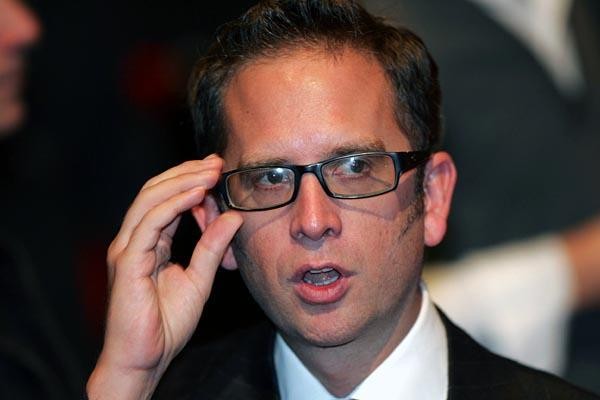Vaughters pushes UCI for greater education on passport readings
Teams need assistance interpreting data

Jonathan Vaughters, president of the International Association of Professional Cycling Teams (AIGCP), is pushing the UCI to help teams better understand and interpret the biological passport results. "My job is to protect the teams and their sponsors, so to do this the teams must be properly educated in how to read bio-passport results. It's something the UCI needs to put an effort into to ensure that everyone involved has the tools they need to continue to better the sport.
"Just because someone is a doctor doesn't mean they can interpret these results. Most doctors do not have training in anti-doping haematology. There are very few experts in the world that can read this information properly. We need to fix that."
Vaughters, who is also team manager of Garmin-Slipstream, has been a vocal supporter of the new passport system and uses its data to stringently screen potential new signings. "Any rider that comes to our team will know that we ask for their complete history, from passport data to therapeutic exemption forms. I've looked at a lot of data, and of course that has played into the decision of whether we sign a rider or not. We set very high standards for ourselves in that regard to protect the investment that Garmin and our other sponsors have made," Vaughters said.
However, what seems clear from recent cases involving Thomas Dekker and Bernhard Kohl is that teams interpret the data in different ways, if even at all, and that they need help from the UCI. "We have three or four people that do it. Our medical team review it together and then we come to a consensus on what that data is pointing to. I don't have a medical background but I am one of those people," said Vaughters.
"I don't really know what other teams do. I don't know their procedures. I know that the information is available, but one thing that I've pushed the UCI for is a basic course to help team doctors that aren't necessarily specialists in haematology learn how to look at the data and how to interpret it correctly.
"I think the UCI felt that the passport data and how it works needed to be kept secret so it's a tricky line in terms of teaching teams to be more knowledgeable. We [AIGCP] want to help the teams but at the same time protect the UCI's position to be objectively enforcing the rules of the sport and not necessarily giving teams the chance to avoid that. It's a tricky line for the UCI."
Vaughters, though, was unable to comment on how much analysis other teams carry out - surely a stumbling block if parity is to be reached. "I don't know what other teams do but our process is vigorous and we have a very critical eye. We're not a team that can afford a positive test so we have to have riders who we fully trust, that we feel the risk is minimal if not none. We can't screw up and thus we have no margin for error at all."
The latest race content, interviews, features, reviews and expert buying guides, direct to your inbox!
Daniel Benson was the Editor in Chief at Cyclingnews.com between 2008 and 2022. Based in the UK, he joined the Cyclingnews team in 2008 as the site's first UK-based Managing Editor. In that time, he reported on over a dozen editions of the Tour de France, several World Championships, the Tour Down Under, Spring Classics, and the London 2012 Olympic Games. With the help of the excellent editorial team, he ran the coverage on Cyclingnews and has interviewed leading figures in the sport including UCI Presidents and Tour de France winners.
